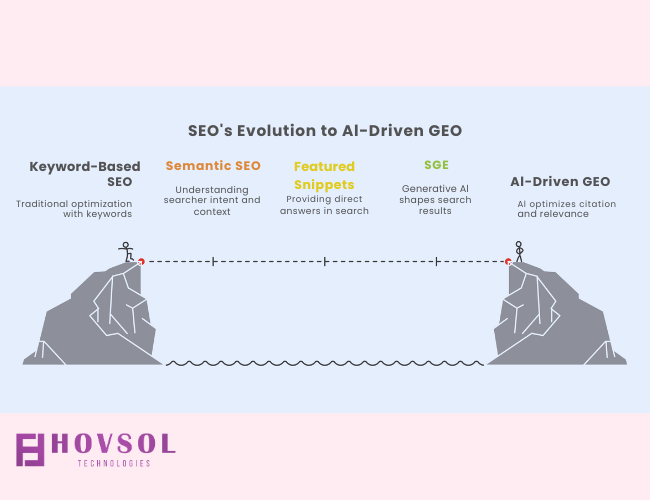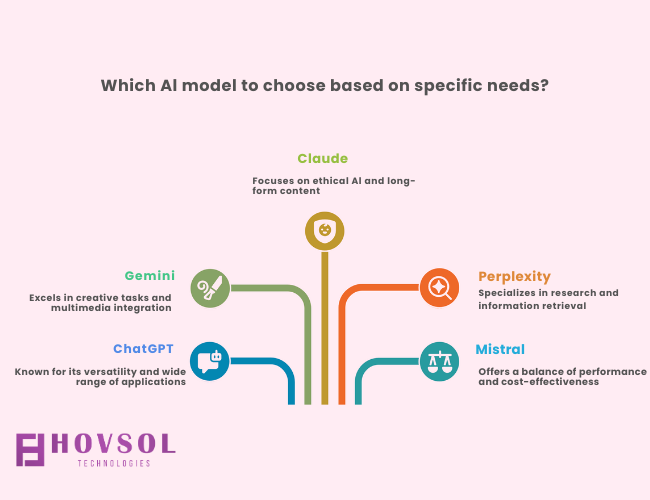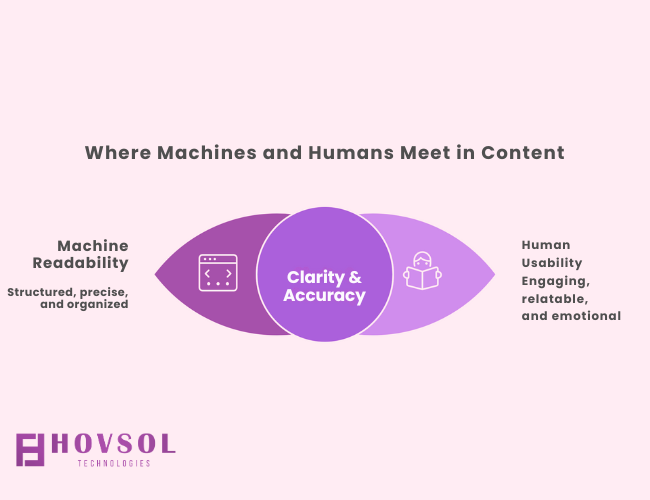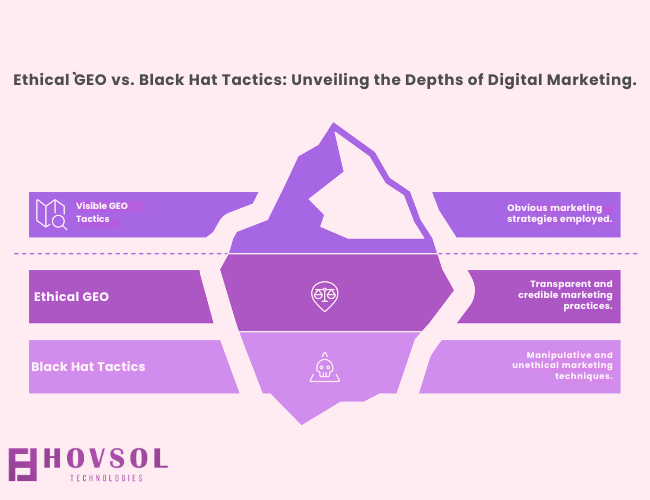Imagine trying to impress a super-intelligent librarian who’s read the entire internet—because that’s what today’s AI-powered search engines are like.
The landscape of search has evolved. It’s no longer just about keywords or clicks.
Generative Engine Optimization (GEO) has entered the chat.
Unlike traditional SEO, GEO isn’t just about ranking high—it’s about being trusted enough for AI to cite you.
Whether you’re a marketer, founder, or strategist, if you want AI to notice your brand, you need to know how it thinks, reads, and recommends.
Welcome to the world where impressing the machine means everything.
For too long, content strategy focused on a direct funnel: create content, attract traffic, and then build brand recognition. However, the advent of AI-driven search, exemplified by Google’s Search Generative Experience (SGE), inverts this paradigm.

Key Takeaways
- AI wants trustworthy, easy-to-read content: GEO is about making your brand the top pick for AI citations—not just search clicks.
- Original data and clear formatting matter most: Authority, strong sources, and structured headings help AI (and people) trust and recommend you.
- Measure brand mentions, not just clicks: Success in GEO means tracking citations across AI platforms and building visibility even when users don’t click
How AI Understands and Chooses Content
To win in the GEO era, you need to understand how AI thinks.
Different AI models—like ChatGPT, Gemini, Claude— Each have their own preferences for what they cite.
But one thing is common:They all love quality, relevance, and authority.
How Top AI Platforms Discover Content
| AI Platform | Unique Feature | Cost/Access | Ideal For | Outcome/Performance |
|---|---|---|---|---|
| ChatGPT | Conversational depth + plugin tools | Freemium | Developers, Marketers | High engagement, citation limited to web data |
| Gemini | Google-integrated results | Free with Google | General users | Cites top-ranked structured content |
| Claude | Emotionally sensitive & long memory | Paid | Creative writing, knowledge work | Reads full PDFs, cites clear sources |
| Perplexity | Instant citation + search combo | Free | Power researchers | Real-time sources with direct links |
| Mistral | Lightweight open-source | Free & open | Researchers, Developers | Speed-focused, best with structured input |

Elevating Your Content with Generative Engine Optimization Principles
At its core, GEO aims to create content that AI models are not only eager to cite but can also easily extract and synthesize information from.
This means a strategic shift in how we approach every piece of content.
Firstly, designing for machine readability is paramount, which surprisingly aligns well with human usability principles.

Short paragraphs and concise sentences streamline the AI’s processing of your content for summaries and direct answers.
Employing clear, descriptive headings, particularly H2s and H3s, serves as vital signposts for AI, aiding its contextual understanding.
Furthermore, summaries positioned at the top of pages offer immediate clarity and significantly increase the likelihood of inclusion in AI-generated quick answers.
Secondly, the emphasis on becoming a primary source of information is more critical than ever.
Instead of merely reinterpreting existing data, actively contribute net-new information to the digital ecosystem through original research, industry benchmarks, proprietary frameworks, and unique surveys.
This not only positions your brand as a thought leader but also inherently earns backlinks and boosts your authority.
It makes your content irresistible to AI models seeking validated, groundbreaking insights.
Thirdly, robust validation of your claims is indispensable for AI credibility.
AI models demonstrably favor transparency, meaning content fortified with clearly attributed facts, data points, and inline citations from reputable third-party studies is far more likely to be surfaced.
This practice reinforces trustworthiness not just for human readers, but critically, for the AI’s own assessment of reliability.
Moreover, ensuring your brand and its subject matter experts are frequently and reputably mentioned across the digital landscape reinforces entity recognition within Google’s systems.
This signals consistent expertise and trustworthiness.
Fourthly, diversifying your content formats for multimodal consumption is crucial in an AI-first world.
AI systems now process information across text, images, video, and audio, meaning your strategy must extend beyond written articles.
Incorporating videos to explain processes, charts to illustrate data, and engaging infographics expands your visibility and increases the chances of AI citation.
Repurposing long-form content into short videos, podcasts, or interactive elements allows for a broader reach and a more engaging experience.
It caters to diverse learning preferences and future-proofs your content as AI capabilities evolve.
Fifthly, a comprehensive cross-funnel holistic view of your brand is required, extending far beyond your owned website.
AI constructs its understanding by synthesizing information from every public source, including reviews, forums, social media, and digital PR mentions.
Maintaining a positive, helpful presence in online communities, securing earned media in reputable industry publications, and encouraging authentic user-generated content on review sites are powerful trust signals that AI models heavily weigh.
This approach is about managing your brand’s entire digital entity to influence how AI thinks and communicates about you.
Unlocking Niche and Global Reach: Advanced GEO Strategies
Beyond these foundational principles, two specific angles offer significant opportunity in the GEO landscape: targeting B2B use cases and leveraging multi-language content.
For B2B companies, where purchasing decisions are often complex and involve multiple stakeholders, GEO offers a unique advantage.
AI can act as a crucial pre-qualification agent for B2B buyers seeking solutions to intricate problems.
By optimizing content to address detailed selection criteria, specific use cases, and direct brand comparisons, B2B brands can ensure AI accurately recommends their specialized products or services.
Creating content that explicitly compares your offering against competitors or provides structured “top N” lists for niche B2B software or services can be a goldmine for AI answer engines.
Additionally, deep dives into proprietary frameworks, detailed case studies showcasing return on investment, and comprehensive whitepapers that explain complex technical solutions can position your brand as the definitive authority that AI will cite when B2B decision-makers query it.
The realm of multi-language GEO presents another significant, often overlooked, opportunity.
While current AI models demonstrate a strong English-centric bias in their aggregated data, this does not mean non-English content is irrelevant.
On the contrary, if your audience is international, providing content in multiple languages becomes essential.
For local AI models or engines in specific regions, optimizing content in the local language could mean competing in a less crowded field for AI’s attention.
For instance, a well-structured article in Thai that comprehensively answers a niche question might become the de facto go-to source for a Thai generative search, simply because fewer local-language websites are optimized for AI.
Early adoption of GEO tactics in non-English content can position your brand as a leading authority within those specific linguistic ecosystems, even if the AI’s capabilities in that language are still developing.
Beyond the Click: Redefining Success in the AI Era
The transition to an AI-first search experience necessitates a fundamental rethink of success metrics.
Traditional SEO KPIs, heavily reliant on organic traffic and click-through rates, no longer fully capture the value of AI visibility in a “zero-click” or “post-click” environment.
When an AI cites your brand’s data or mentions your product as a solution, it delivers significant value in brand awareness and authority building—even without a direct click to your website.
Therefore, marketers must embrace new Key Performance Indicators to measure their GEO efforts.
These include tracking citation frequency across AI platforms, monitoring Share of Voice (SOV) in AI relative to competitors, and conducting qualitative analysis of the sentiment and accuracy of brand mentions.
While referral traffic from AI remains important when links are provided, measuring branded search lift – increases in direct branded queries following AI mentions – becomes a crucial indicator of indirect value.
Users referred by an AI recommendation tend to be highly qualified, often converting at rates significantly higher than traditional organic traffic, underscoring the powerful pre-qualification that occurs within the AI interface.
FAQs
1. What is GEO and how is it different from traditional SEO?
GEO (Generative Engine Optimization) is about optimizing content so AI models cite you as an authority—not just ranking for keywords.
2. Why do I need short paragraphs and clear headings?
AI models scan for quick, structured answers. Short paragraphs and descriptive headings help AI (and readers) extract your expertise.
3. Does GEO only work in English?
No—local language content, especially in under-served markets, can become the main authority for AI engines in that language.
4. How should I track GEO results?
Focus on how often AI models cite your brand, your share of voice in AI-generated answers, and branded search lift—not just clicks.
5. Can GEO tactics backfire?
Yes. Spammy or manipulative content may be flagged by AI quality filters. Focus on original, helpful, and ethical content for lasting results.
The Ethical Imperative and Future-Proofing Your Content

The rise of GEO brings risks like content manipulation and AI spam.
Major AI providers are building countermeasures rooted in search quality systems and spam detection.
Engaging in ethical, high-quality content creation is the most effective way to future-proof your content.
Marketers should think like librarians, creating comprehensive, authoritative resources that AI will trust and cite.
Prioritizing ethics, credibility, and avoiding shortcuts is critical.
The ultimate GEO reward belongs to those who earn citations by providing the best, most truthful, and most helpful answers.
Wrapping Up: Your Next Step
Embracing GEO is essential for brands seeking visibility in today’s AI-driven search landscape.
Ready to dive deeper into AI-driven content strategies?
Explore our detailed guide on SEO vs. AEO vs. GEO and discover how to future-proof your content effectively.




